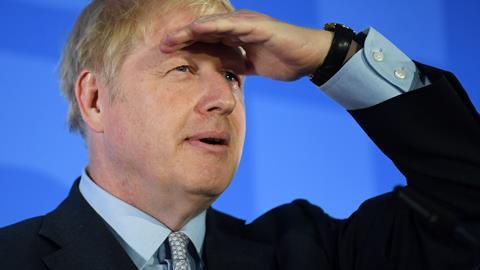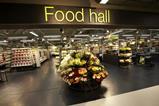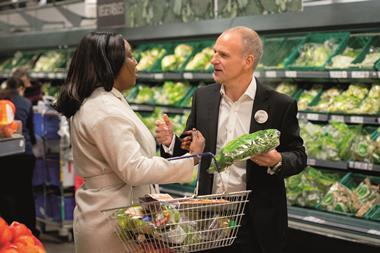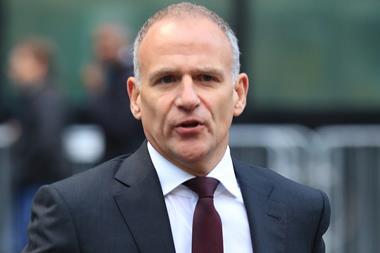And amid the Conservative leadership race, have government department preparations stalled?
The threat of a no-deal Brexit is looming larger than ever this week if the Conservative Party leadership debate is anything to go by.
And, as the candidates battle it out for No 10, fears have been raised that a no-deal Brexit on 31 October represents an even bigger nightmare on the horizon for the food and drink industry than the deadline that came and went in March.
Tesco boss Dave Lewis warned last week that a repeat of the sort of mass stockpiling carried out by many retailers and suppliers earlier this year will be impossible for the industry to carry off, with warehouses already full to the brim in the run-up to Christmas.
So what can companies do to prepare? And is the government doing enough to make sure they get the information they need?
Lewis is not alone in warning of the terrible timing of a “disorderly” Halloween Brexit.
“The end of October is the worst time for a no-deal Brexit,” says Andrew Opie, director of food and sustainability at the BRC. “We’ve got warehouses that are already going to be full because they are stocked up for Halloween, Black Friday and Christmas.” And many food retailers and suppliers would surely be reluctant to stockpile again, even if they had the luxury of extra capacity.
“It’s a case of once bitten twice shy,” says FDF chief executive Ian Wright. “Businesses that did stockpile before March have since then been having to unwind their inventories.
“Lots of managers will think, well, this is just a waste of time, especially as the political debate around a no-deal is so difficult to decode.
“You have people like Boris Johnson and [now eliminated from the race] Dominic Raab saying they are going for a no-deal and others saying they would do all they can to avoid it. If you’re a manager in a food business, what in the blazes do you make of that? Is it just bluster or do they mean it?”
Wright agrees the timing for those who do try to stockpile is impossible. “I spoke to one manager who was looking for space for 12,000 pallets of chilled and 12,000 of frozen and there was no space available for him for the period 31 October onward. It has been booked for two years.”
Questions have also been raised about whether government planning efforts have ground to a halt.
Tim Rycroft, FDF chief operating officer, told MPs on the Exiting the EU Committee last week that while the two extensions so far had been welcome, “what it brought was a bit of a standstill of all the work that was going on”.
“A lot of the questions that were actually progressing as the deadline approached have been put back on hold,” he added.
Meetings between Defra and a raft of industry bodies, including the FDF, BRC and NFU, have continued, on a weekly or two-weekly basis, the latest being held this week.
But the FDF questions whether the department still has the resources to back up its goodwill. “Defra has been very engaged with businesses but other departments in government do not seem to have been as engaged,” says Wright.
“The vast majority of the extra civil servants that were drafted in to help Defra deal with no-deal planning have now gone back to their departments.”
Defra published a swathe of documents earlier this year advising companies about what would happen after a no-deal, including updated guidance on food and drink labelling, information for animal imports and exports arrangements under possible trade agreements.
But some industry sources are calling for a much more effective education campaign to help businesses facing uncertainty as the new deadline looms.
“The end of October is the worst time for a no-deal Brexit”
Self assessment
Some of the concerns are shared in Whitehall. The Grocer understands plans being lined up by officials include a new self-assessment tool being developed by the Border Delivery Group, which will help businesses get a better grip of the scale of the bureaucracy involved in Brexit for exports travelling to the EU. “The government is privately very worried that there is going to be a problem with British trucks not having the right paperwork and that this could cause major delays which ruin their effort to minimise disruption,” says one source.
“There have been some encouraging signs that Calais is much better prepared in the event of a no-deal than it was at the start of the year. The facilities for trucks, the infrastructure for trying to prevent tailbacks, is better now, and of course there are going to be very limited checks on the UK side of the UK border, at least temporarily.
“But there is a lack of knowledge among companies about what is expected of them in the event of a no-deal, which has the potential to cause major disruption.”
In the event of no-deal, sources say a typical truck delivery for a food retailer entering Calais might need between 60 and 100 different certificates, depending on what products they are carrying.
“There is a real fear that many companies are just not set up to handle that level of bureaucracy,” says the source.
“There is still a lack of awareness among British companies about their responsibilities in importing and exporting in the event of a no-deal,” admits the BRC’s Opie. “The government has a huge challenge in educating them, ensuring they are registered where necessary and know the procedures to follow. We anticipate the main activity ahead to be another major public information campaign.
“But what everybody needs to understand is that there is a limit on what the government can do. Individual businesses can make sure they are as prepared as possible for the worst to happen.”
Sean Ramsden, CEO of food exporter Ramsden International, agrees. “I think the government has done a decent job of education and now it’s down to businesses to ensure they are looking at horizons outside traditional markets and the EU,” he says.
“The UK government remains focused on ensuring our smooth and orderly withdrawal from the EU with a deal as soon as possible,” says a Defra spokeswoman. “As part of this, we have been working closely with the food industry on its contingency planning and will continue to do so.”
But the message is clear. While industry leaders may still hope to avoid a no-deal, to do nothing, despite the logistical problems and lack of information, is asking for a world of trouble.
The candidates on no-deal
“We must leave the EU on 31 October, with or without a deal, so we can begin to unite our country, restore trust in our politics, and move beyond Brexit to focus on delivering for everyone.”
Boris Johnson
“It is no deal or WTO terms that actually corresponds to their [voters in the 2016 referendum] idea of coming out.”
Boris Johnson
“We need to crack on and deliver Brexit. We have the opportunity to leave the EU and transform our country for the better. Then we can have an election and say to Jeremy Corbyn ‘you discredited Marxist, get back in the dustbin of history where you belong’.”
Michael Gove
“[Turning to Johnson in leadership debate] What would you say to a sheep farmer in Shropshire that I met whose business would be destroyed by 40% tariffs? What if there is a deal in sight but you took us out anyway without one? He would say, ‘you got your dream of getting into No 10, but what about my dream?’”
Jeremy Hunt

























No comments yet